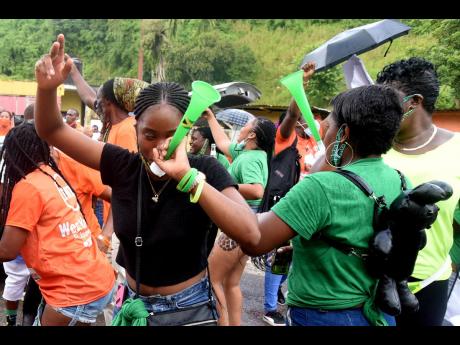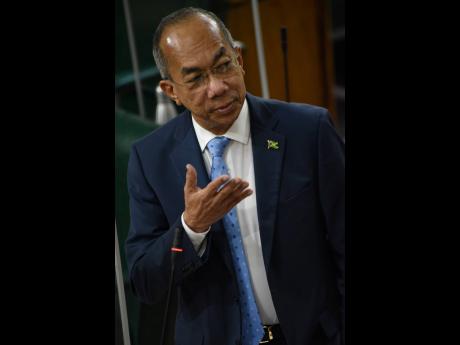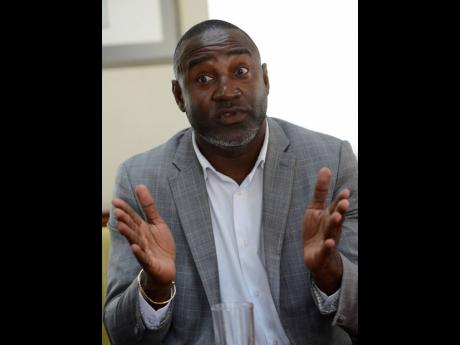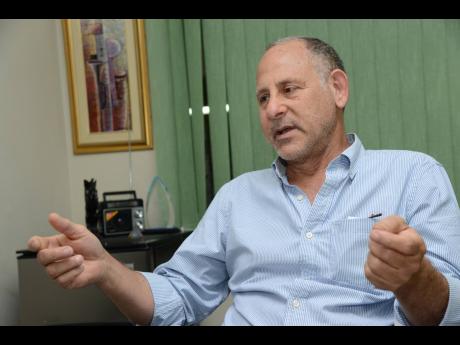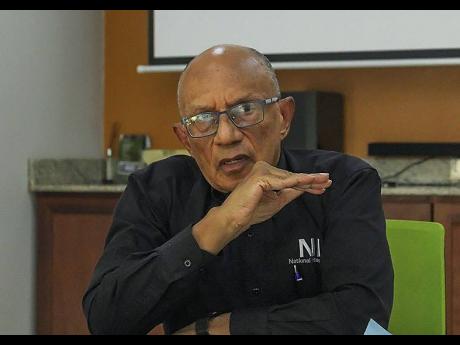$300m donated to parties ahead of 2020 election
Call renewed for public disclosure of all financiers to boost transparency
Approximately $300 million was donated to Jamaica’s two main political parties for the 2020 general election, the Electoral Commission of Jamaica (ECJ) has confirmed, amid renewed calls for the law to change to reveal the names of contributors.
But the two main political parties – the ruling Jamaica Labour Party (JLP) and the Opposition People’s National Party (PNP) – are not enthusiastic about disclosure at this time, fearing the flight of their deep-pocketed financiers.
The Representation of the People Act (ROPA) was amended in 2016 to include provisions regulating the funding of elections, a first in the CARICOM region; while tying disclosures to a specific campaign period of about six to seven months before an election is due or from the date the prime minister announces an election.
The campaign period for the 2020 election ran from August 11 to September 2.
The JLP, which won that poll for their first consecutive victory since the 1960s, declared receiving approximately $176 million in contributions, while the PNP reported $122.5 million.
The JLP received 44 contributions in excess of $1 million, which totalled about $169 million. It included 32 donations between $1 million and $4.9 million; eight between $5 million and $9.9 million and four contributions of $10 million and over.
The PNP got 33 contributions over $1 million, which amounted to about $120 million. That was made up of 26 between $1 million and $4.9 million; four between $5 million and $9.9 million; three that were $10 million and over.
Fourteen of the country’s major businesses were contacted by The Sunday Gleaner and eight confirmed that they made donations to the JLP and PNP. Two said it was against their policy, while another four entities did not provide a response.
Investment firm Proven gave $2.5 million to each party; the VM Group gave $1 million to each; and JMMB donated $2.5 million to both.
The two main telecoms firms, Flow Jamaica and Digicel, said they provided support.
Flow said it donated airtime in equal number of slots valued at US$37.5k (J$5.6 million) on its subscriber television platform on which the company inserts advertising.
Digicel said it made equal donations to the JLP and the PNP but did not state the amount.
Food and financial services conglomerate GraceKennedy said its donation was split equally between the parties but “we do not typically share details about the value and nature of these donations”.
The Musson Group of Companies also did not reveal the value of its contributions, although it said Musson Jamaica Limited and its subsidiaries “have a long-standing practice of supporting the democratic processes in Jamaica”.
The JN Group directed queries to the Electoral Office of Jamaica.
Scotiabank Jamaica and Jamaica Energy Partners said they do not make political contributions.
It is not unusual for some of the top corporate firms to publicly disclose their donations, as several have done so in previous elections through the Private Sector Organisation of Jamaica.
Most of the institutions that confirmed their contributions to The Sunday Gleaner did not indicate the date of their donations so it is not clear if all fell within the campaign period.
FIRST TEST OF SYSTEM
The ROPA amendments were applied for the first time in the 2020 election so the data released by the ECJ under The Sunday Gleaner Access to Information request was the first test of the new system.
Under the law, contributors may give a maximum of $1.5 million to each candidate and up to $31.5 million to a registered political party. Contributors of $250,000 or more must declare contributions as well as any government contracts valued at $500,000 or more, which are held or gained up to two years before or after a contribution.
In terms of expenditure, the law allows parties to spend up to $10 million per constituency. Jamaica has 63 constituencies, which means the total figure is up to $630 million. Additionally, each candidate can spend a maximum of $15 million.
That means that the total expenditure of a party, both in terms of what the organisation and the individual can spend, amounts to about $1.6 billion.
While the parties submitted their expenditure reports to the ECJ for the 2020 polls, those details are not made public.
The ECJ is authorised to release details only covering total contributions received by the parties during the campaign period and a list of contributions in excess of $1 million received by the parties or candidates.
JLP General Secretary Dr Horace Chang said the party spent at least $300 million for 2020, and between $300 and $400 million in 2016. Costs covered advertising, transportation and big meetings, which were largely absent in 2020 because of COVID restrictions.
The PNP did not provide details to The Sunday Gleaner.
LOOPHOLES
Along with calls for the naming of donors, concerns have been raised about loopholes in the current regime such as the defined campaign period, which advocates believe could be exploited to hide the true scale of donations and expenditure by political parties and candidates.
A response to some of the concerns was not received up to press time from the ECJ, an internationally respected state body that emerged out of the political turmoil of the late 1970s and amid a then tainted electoral process, to now preside over subsequent decades of an admired system.
The Jamaica Manufacturers and Exporters Association (JMEA) and the National Integrity Action (NIA) are insisting that the Government should urgently consider further changes to the law to bring greater transparency to the financing of Jamaica’s elections.
According to JMEA president, John Mahfood, there should be “no privacy” because the Government makes rules for the people and “anything that can interfere with how they make those rules, including donations and so on, should be public”.
“Governments are influenced greatly by a number of factors, including donations from companies that do business with the Government; that are interested in doing business with the Government,” added Mahfood, the CEO of Jamaica Teas Limited, who said his company does not make political donations.
He also dismissed the political parties’ view that disclosure of contributors could turn off potential donors, saying financiers would only fear disclosure if they are “doing it for reasons that are not bona fide”.
Mahfood stated, “All companies in Jamaica make public donation, all of the big public companies, and they make millions of dollars of donations. It should be public and their board of directors should make it public and the fact that they don’t, I think, is an indictment on the Jamaican private sector.”
Pointing to the almost two-decades process to get the campaign finance law, Professor Trevor Munroe, the principal director of the anti-corruption lobby, NIA, said the wait should not be as long to plug loopholes.
Munroe said the ECJ needs to publish the final disclosure report of the political parties, including which recipients of public contracts above $500,000 exercised their right to contribute to registered political parties and which individuals or entities contributed above $1 million.
“Credible allegations concerning the diversion of public funds to political cronies by way of directorships on public bodies, breach of procurement regulations and questionable grant of permits make more urgent issues relating to campaign finance kickbacks,” Munroe told The Sunday Gleaner.
The current law says during campaign periods, parties and candidates are restricted from knowingly accepting funds from, among others, foreign governments, public bodies, illegal entities, anonymous contributions and intermediaries.
Munroe said the ban on ‘impermissible donors’ needs to extend all year, every year.
“The public must know who pays the piper – and not just during the ‘reporting period’ or the ‘campaign period’,” he said, noting that the law should also oblige the ECJ to receive quarterly and publish annually reports on contributions above a certain sum received by parties and candidates as well as sources of such contributions.
The law also establishes the State financing of registered parties through the National Campaign Fund but that has not been activated.
Trinidad and Tobago is now contemplating a proposed law that requires the public disclosure of donations above a particular amount in any financial year.
But the JLP and the PNP say Jamaica is not ready for that.
Dr Chang said the “small” society has not matured to the stage where it can deal with such disclosures.
He has also challenged international reports such as Transparency International’s Corruption Perception Index on which Jamaica has consistently been ranked in the bottom half of countries branded most corrupt and which are used to push tighter regulations.
“These studies come and they just make some generalised positions. Where is the corruption? How much is it?” Dr Chang asked.
“There’s some level of corruption in the system which has nothing to do with politics. It has to do with an overregulated society and people do things to get a break,” added Dr Chang, who is also the deputy prime minister and minister of national security, in cautioning against more rules.
“Overregulation has caused most of our corruption in Jamaica. Some people try to beat the system because the system is inefficient and overregulated and they do something to get the system to work faster for them.”
According to Dr Chang, many of the transparency calls have come from non-governmental organisations which, he argued, have a role in liberal democracies “but a lot of times they assume unto themselves responsibilities which are not reflective of the society; it is reflective of sectoral interests”.
He said to reveal the names of donors now would be to enable the creation “of all kinds of mischief”, adding that, “anything you do after that they say it’s because you contributed to the party and we are a small society”.
Though not in favour of it, Dr Chang said to accommodate the calls for disclosure, there would have to be more systemic changes to include the public financing of political parties; public registration of members – similar to the practice in the United States – and the disclosure of the status of top civil servants.
He said it should be sufficient for the ECJ to receive the details with no requirement for the information to be made public.
“That’s where it should be. If there’s a challenge to one, we have a robust anti-corruption regime from Integrity Commission to the investigative capacity of MOCA (Major Organised Crime & Anti-Corruption Agency), so if somebody feels somebody breaches the rules, and it does happen because of contributions, then they should investigate it and I think we can do that very effectively,” he stated.
NO OBLIGATION
The PNP said it would support “any measure” that will increase transparency.
“If there is need for us to revisit the legislation so that we plug any loophole that exists in the current form, then I will be supportive of that,” said the party’s general secretary, Dr Dayton Campbell, who said he was not aware of any attempts to circumvent or bypass the current law.
Regarding donor disclosure, Campbell reiterated that the party has no obligation to make its contributors public.
“I can’t at this time support or suggest that we would make that public because we are not obligated to do that at this point in time and if we were to do so, it may negatively affect our ability to raise funds,” said Campbell, one of four political representatives (two from each party) who sits on the ECJ.
“Some persons may not want to make it public. You may want to give a million dollars to my campaign because you like the politician that I am but you don’t want that to be made public,” he told The Sunday Gleaner.
“I’m for transparency and good governance. What I want is for the process which we put in place to award contracts to be transparent and fair. It doesn’t matter whether or not somebody contributes, once the process that we use to award the contract is fair, then that should safeguard the concerns.”

